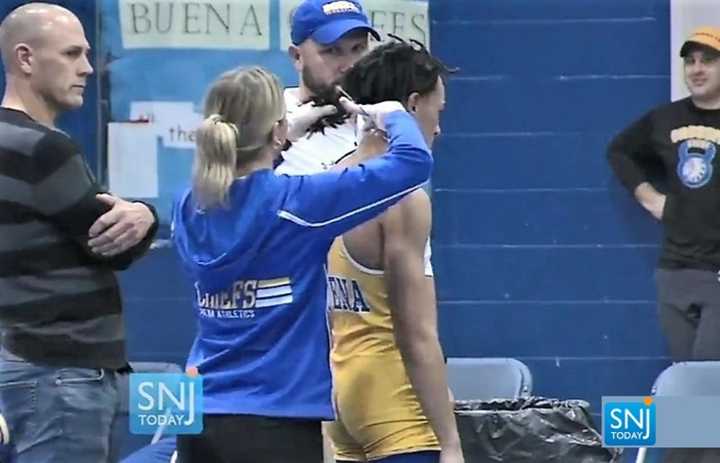Attorney General Gurbir S. Grewal, who announced the decision in tandem with the state Division on Civil Rights, also mandated anti-bias training for officials and staff involved in high athletics across the state.
At the same time, the DCR issued guidelines that explain when treating people differently due to their hairstyle may violate the state’s anti-discrimination laws, in an effort to help prevent further issues.
The guidelines say that discrimination on the basis of race includes discrimination based on a trait “inextricably intertwined with or closely associated with race,” including hairstyle.
Policies that ban, limit, or restrict hairstyles closely associated with being black or having black ancestry —including twists and locs — may violate New Jersey law, the guidelines said.
“Racial discrimination in the enforcement of the rules of any sport is inconsistent with the spirit of fair play,” Grewal said. “Student-athletes should be able to compete with each other on a level playing field.”
The attorney general commended the NJSIAA for “working collaboratively with DCR to ensure equal treatment of all student-athletes.”
DCR launched its investigation after a 16-year-old Buena Regional High School (Atlantic County) wrestler who identifies as mixed-race had his locs cut while on the mat prior to a match with a wrestler from Oakcrest Regional High School last December.
Investigators from both the DCR and NJSIAA in interviewed the student, the ref, the NJSIAA rules interpreter, NJSIAA officials, members of the New Jersey Wrestling Officials Association and the rules interpreter for the National Federation of State High School Associations (NFHS), which develops and publishes the rules for high school wrestling across the country, among others.
The referee contended the wrestler’s locs violated NFHS Rule 4.2.1, which governs the length of an athlete’s hair and when an athlete must wear a hair cover.
The wrestler couldn’t find a hair cover that met specifications, so the referee ruled that he’d forfeit the match if he didn’t cut his locs.
As part of a signed agreement between the DCR and NJSIAA, the association will provide in-person training to all of its local interpreters and to all wrestling officials in the state emphasizing that Rule 4.2.1 is based solely on hair length, not on hairstyle.
The training, which will be completed before the start of this year’s wrestling season, will also explain the long history of discrimination based on hairstyle Grewal said.
The NJSIAA also agreed to provide implicit bias training to all high school sports officials in New Jersey and will require its member schools to provide such training to all athletic administrators, coaches and athletic trainers who work in high school sports.
The DCR will collaborate with NJSIAA on the training.
“Discrimination against black people because of their hair, which is often based on stereotypes that traditionally black hairstyles are ’unprofessional‘ or ’unkempt,’ is a persistent form of anti-black racism,” said DCR Director Rachel Wainer Apter.
“This guidance makes clear that employers, housing providers and places of public accommodation cannot police black hair,” Apter said. “The MOA will ensure that high school athletes across the state can focus on being their best, not worrying that their hair will subject them to differential treatment based on race.
Click here to follow Daily Voice Jersey City and receive free news updates.
